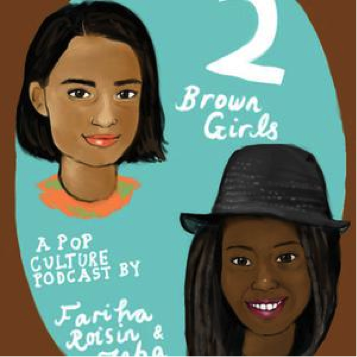Radio lost its prominence in my life at around 14, when I stopped keeping track of the Top 40 — even then I wasn’t too interested in what anyone actually had to say. I’d never really grasped the appeal of a podcast either, until quite recently. Zuri Gordon (of Sad Girls Clüb) describes its charm aptly, as a “super accessible and informative” form of media: “They’re free, you can multitask while listening, you don’t need to be well read to understand them, and depending on what you want to hear about and who you want to hear it from, you can find a podcast that’s tailored to those interests.”
Zuri and Gwen begin each episode of Sad Girls Clüb with a particularly distinctive routine. They list what they’ve been reading, listening to, and watching, as well as, most notably, how the legacy of colonisation has impacted their lives this week – a treatment of imperialism I really appreciate; while racial micro-aggressions and the like are so insidious and pervasive, they are simultaneously entirely mundane. Often, when you try to discuss ideas about racial and sexual hierarchy in current society, it is hard to do so convincingly without using a considerable amount of sociological jargon and statistics. Podcasts like Sad Girls Clüb aim to get information across in a different way, speaking in a tone that is both informative and informal about topics that range from solemn current events to pop culture news — both are rightly given equal importance as social indicators.
“We really try to talk about these ideas in a way that our friends can understand without feeling alienated by our language. I think those concepts can seem really abstract or academic or just far removed from people’s lives, but they affect every person, and I’ve found the podcast as a way to talk and joke and theorize about stuff so that people understand how relevant it is to them. I also just appreciate the fact that there’s even room on the internet for our voices to be heard, especially by people who can’t or don’t want to read.”
Another more veteran podcast I’d like to mention is Two Brown Girls (known colloquially as 2BG), consisting of Fariha Róisín and Zeba Blay. Both women are well-established on the internet as writers, and their fluency is unmistakeable throughout the 100-odd episodes they’ve recorded so far. Often iconoclastic, Zeba and Fariha are unapologetic in their feminism and, like Gwen and Zuri, their discussions welcome you in a way that makes you feel part of the conversation.
The appeal for me is not just the winning combination of current cultural events with esteemed intersectional feminist theory, but it’s having your existence reaffirmed as a woman of colour. Having your opinions about the injustices you witness daily developed and validated on a bi-weekly (well, monthly) basis is a lovely experience, so I for one certainly appreciate intelligent, funny women chatting in my earbuds all day.
Words by Jenna Mahale
Image source(s): SoundCloud, MixCloud
